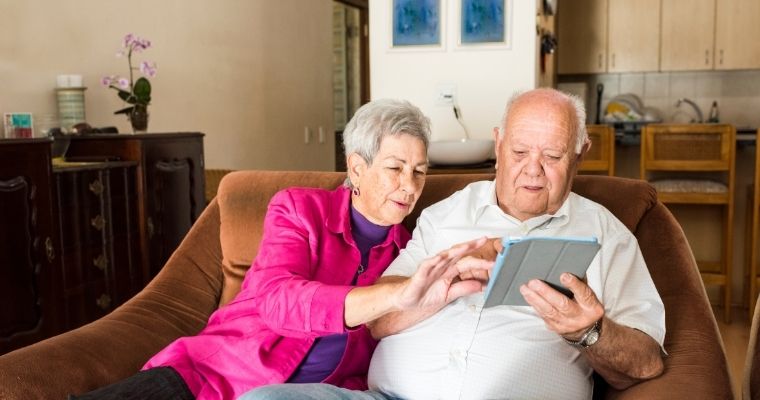A recent study revealed that the COVID-19 pandemic increased the number of seniors who are socially isolated from their friends and family members. These include nursing home residents and community-dwelling seniors who have to follow stay-at-home orders and limit in-person visits. As a result, loneliness has spiked among the ageing population compared to previous years.

Research shows that loneliness and isolation are two major risk factors with direct links to poor physical and mental health conditions, particularly among older adults. Prolonged isolation has adverse effects on health and well-being, such as obesity, high blood pressure, heart disease, weak immune system, and even premature death.
To address the consequences of loneliness and social isolation, it’s crucial to implement strategies that encourage social connection amid the physical distance.
The pandemic is indeed a difficult time for families, especially seniors and sick people. Although you can’t visit and enjoy quality time with them during this crisis, there are many ways to establish connections. With that in mind, here are ways to show your support to ageing loved ones while staying physically distant.
Use communication channels
Checking in on your senior loved ones will only take a few minutes of your time, but the benefits can make a huge difference in reducing feelings of loneliness. Take time to give them a call and engage with them by sharing stories, telling jokes, or updating them about your life.
Virtual check-ins through Skype and Facetime prove effective in addressing a senior’s need for social interaction. Set up a consistent schedule to connect so that they have something to look forward to when living alone. This works best for seniors living alone since their everyday life can be boring, mundane, and isolated. To ensure everyone gets involved, you can also invite other family members to join the video chat.
If your senior parent has no knowledge of technology, you can coordinate with the nursing staff to help them set up the device. If you have time to meet them in person, provide them with a mobile device such as an iPad and devote time to teaching them how to use it. This way, the next time you travel far, it will be easier to connect with them regardless of the distance.
2021 Apple iPad Pro (11-inch, Wi-Fi, 256GB) – Space Grey (3rd Generation).
Encourage them to use social media
Most seniors today are intimidated by technology. They feel uncomfortable with computers and phones, which leads to avoidance. Studies show that social media use has a positive effect on older adults’ well-being by reducing the risk of loneliness and depression.
Seniors can join a variety of social media platforms depending on their interests. Facebook provides mental and social benefits for seniors by staying connected with their family and friends who live far.
There’s Pinterest to inspire seniors to take on creative projects by checking out decorating ideas, DIY projects, and scrapbooking suggestions. You can also encourage them to join YouTube to gain access to millions of videos that cover a broad category of topics.
Besides building relationships, the goal of using social media is to help seniors acquire interesting facts and share their ideas with like-minded people. This will also open opportunities to establish their network and meet new friends.
Monitor their health appointments
If there’s one thing you should prioritise this pandemic, it would be keeping up with a senior’s health appointments. Seniors are one of the most vulnerable populations to be affected by COVID-19. For this reason, it’s important to keep their health in check to ensure they’re safe from potential health threats.
Most healthcare consultations these days take place through video conferencing platforms. If they’re not familiar with them, you have to stay on top of their medical needs, especially if they suffer from a chronic disease.
Coordinate with their physician about their health status and set up appointments if needed. More importantly, make sure they never run out of healthy food and medications to prevent them from going out and buying necessities.
While the pandemic can be a challenging time to live away from your senior loved ones, but maintaining social distance is important to keep them safe from the spread of COVID-19.
The suggestions above can help them stay socially connected and safe from the crippling feeling of isolation and loneliness. In the end, your best bet is to use technology to keep them socially active.


